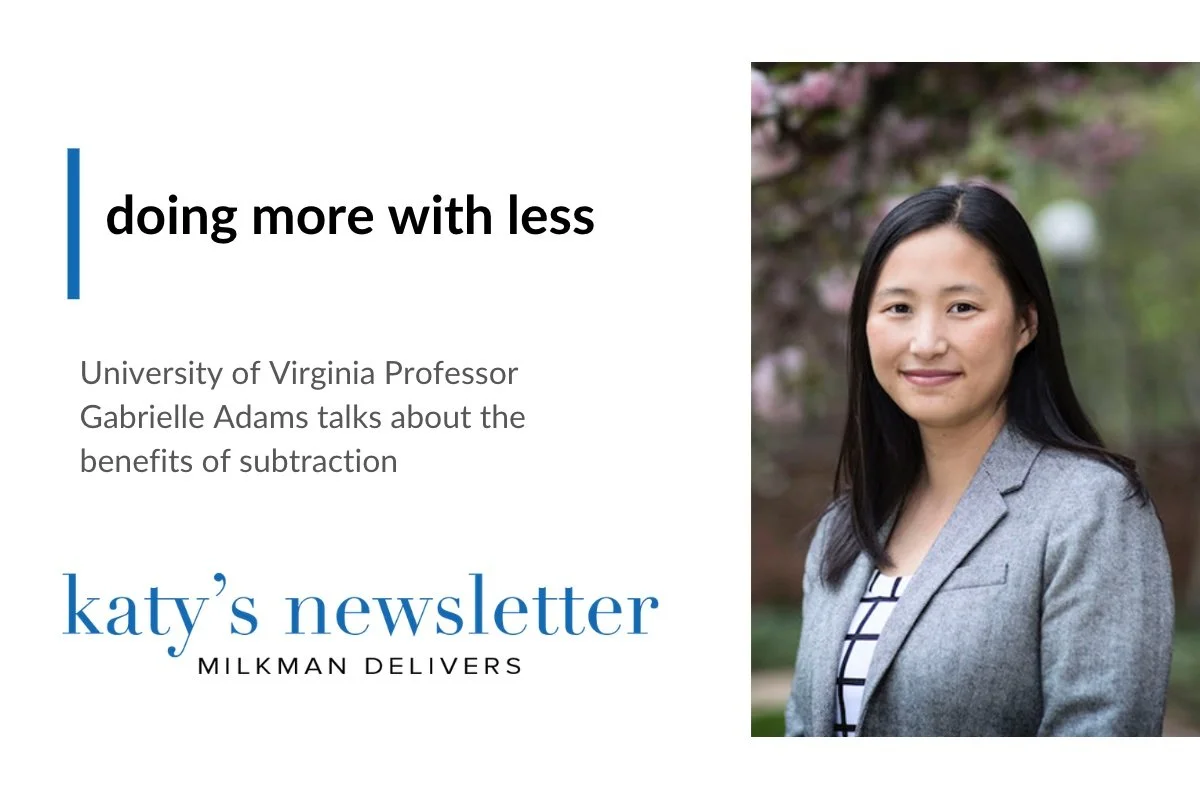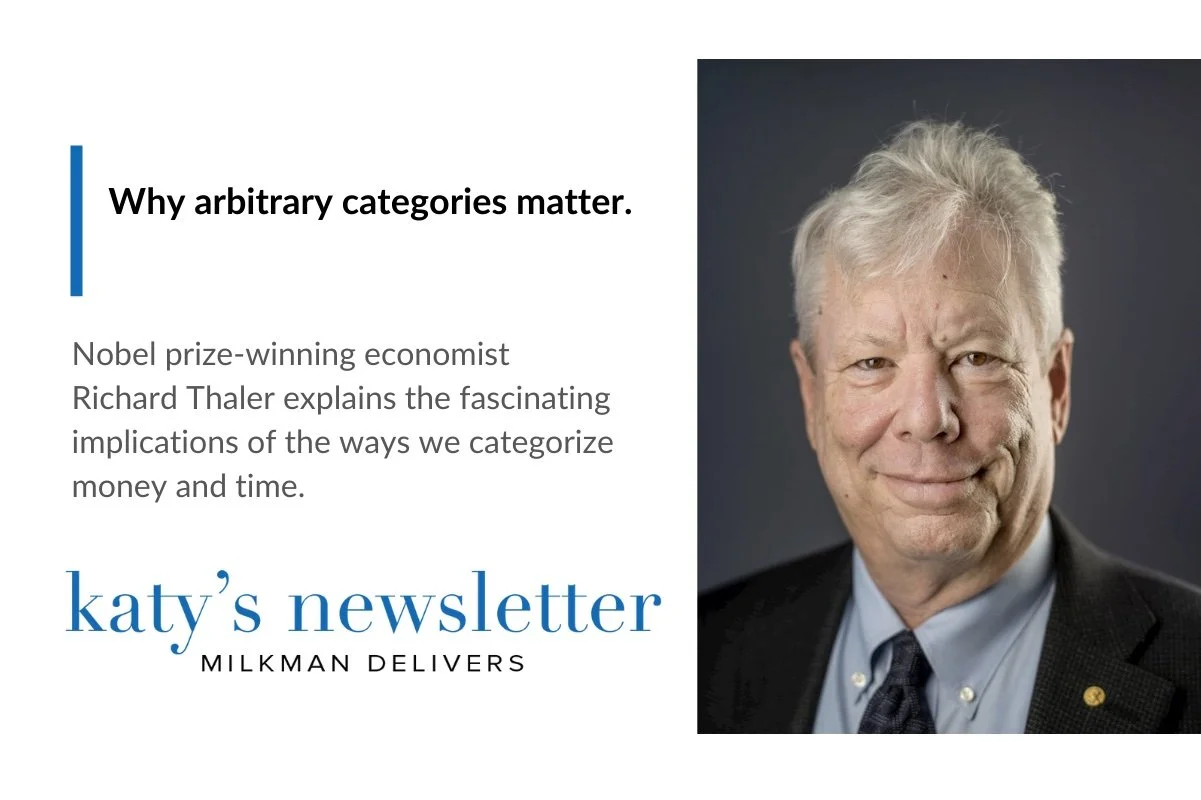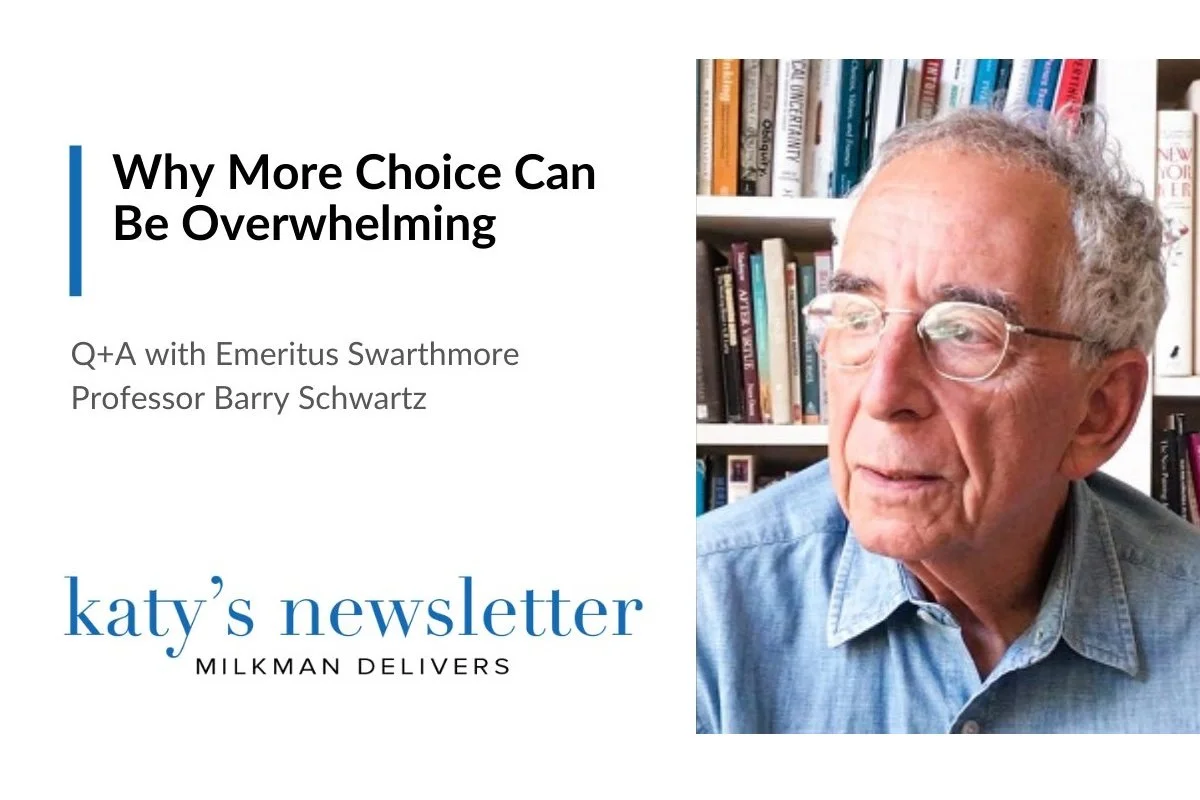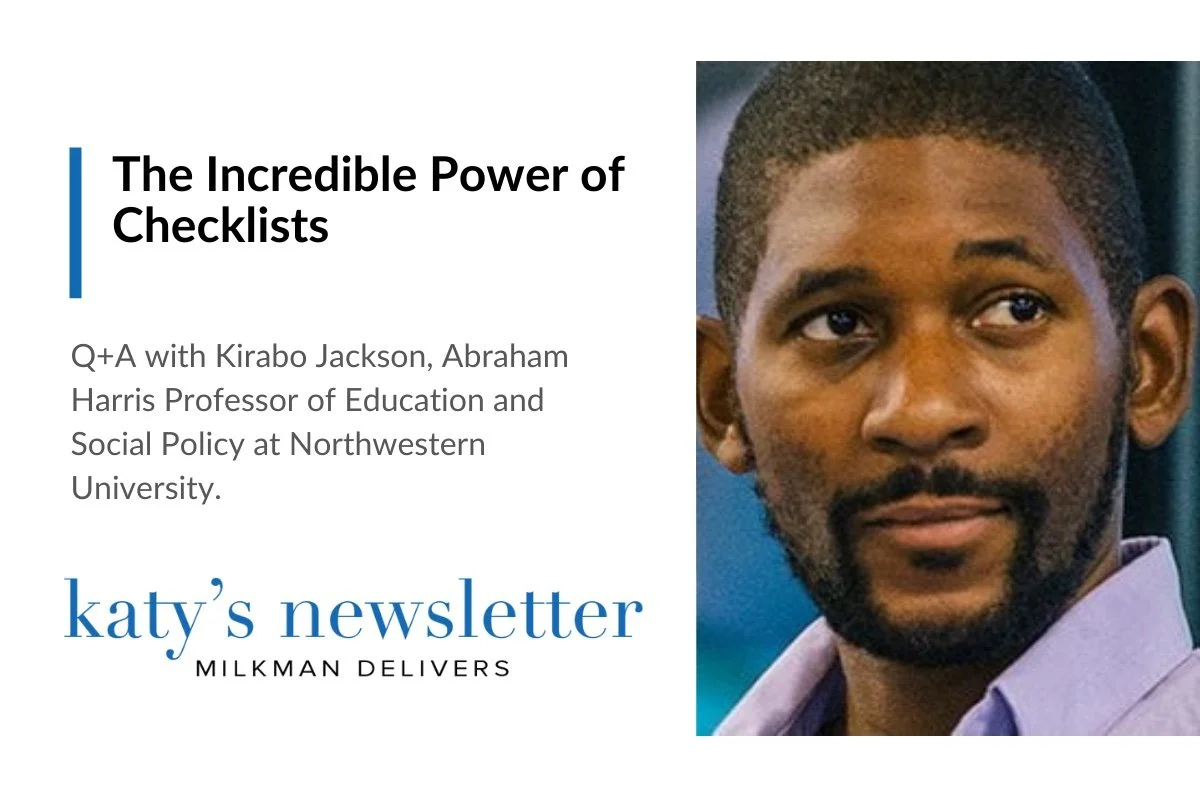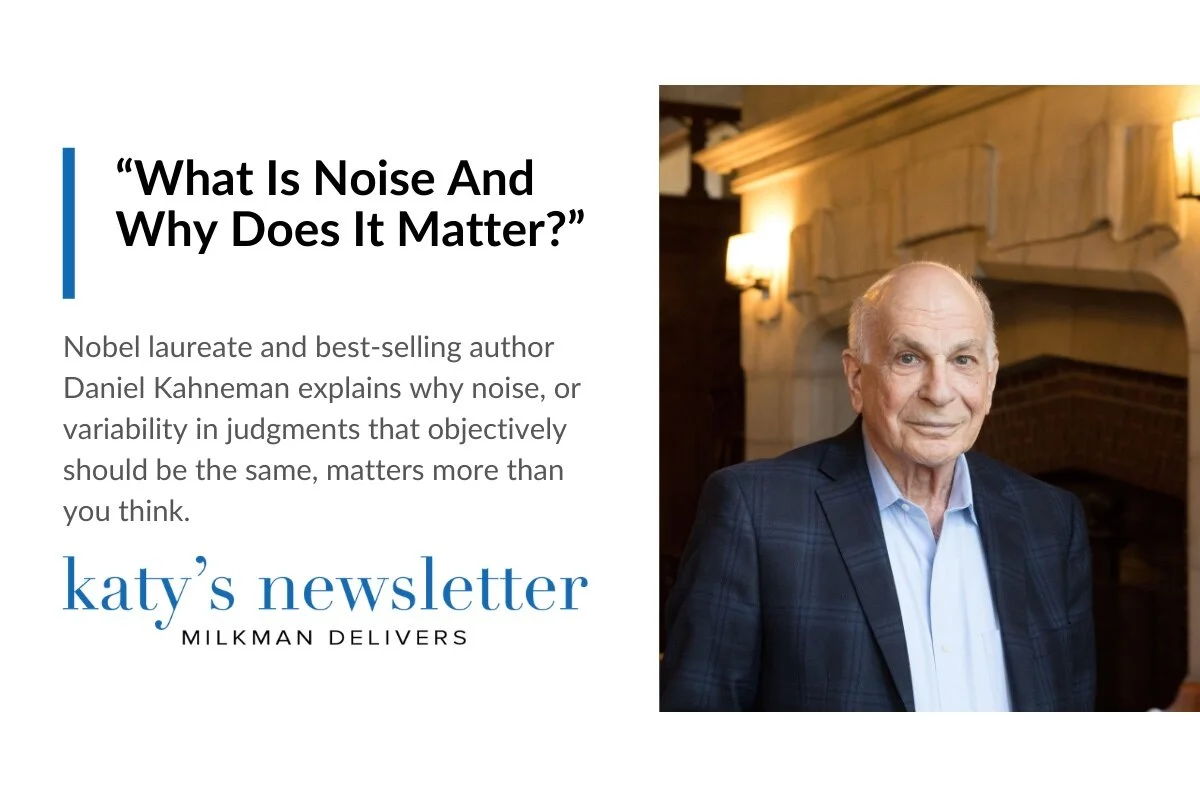February 28, 2023
I hope you had a wonderful Valentine’s Day! As a sign of my love for you, dear subscriber, I’m sharing an interview with one of the greatest living social psychologists about a bias so fundamental that the word fundamental is in its name! I’ll cut to the chase quickly so you can learn about a logical error profound enough to confound Aristotle. But first I have just a few recommended listens and reads to share.
January 24, 2022
Happy New Year! If you’ve read How to Change, you know that early January is reliably weird for me because every reporter, podcaster, radio host and tv anchor is desperate to interview someone (anyone!) for a story on New Year’s resolutions. And guess what pops up if you Google “scientist who studies New Year’s resolutions”? No, it’s not Bill Nye …
December 20, 2022
The most popular edition of this newsletter yet was a list of my favorite things, which I shared at the end of 2021. Since making decisions informed by data is my shtick, naturally, I’m bringing back the “favorite things” theme for the end of 2022. I hope this year’s list of my favorites will help you discover some wonderful new reads, listens and laughs, and I wish you and yours a fantastic holiday season!
November 22, 2022
Have you ever gotten a selfie from a dear friend taken on the set of a big budget Hollywood production featuring said friend with a major movie star? Well, maybe you have, but I certainly hadn’t until about a year ago when my incredible co-author Modupe Akinola texted me a snapshot of her palling around with Thor (aka Chris Hemsworth) in Australia where National Geographic was filming the first episode of a new documentary called Limitless with Chris Hemsworth. In honor of Modupe’s Hollywood debut, I’m featuring a Q&A with her about stress from the Choiceology archive this month.
October 18, 2022
Do you remember the classic 90s movie As Good As It Gets? In an Oscar-winning performance, Jack Nicholson utters a now famous line to Helen Hunt, who’s helping him confront a long untreated mental illness. He tells her: “you make me want to be a better man.” I think of that line whenever I think of NYU Stern Professor, best-selling author and popular TED talker Dolly Chugh because she’s the person in my life who most consistently inspires me to be better. Dolly studies implicit and explicit bias, and she writes about how science can help us uncover inequities, grow, build more inclusive organizations, and contribute to a more inclusive world. She’s also an incredible human being.
September 27, 2022
My Wharton colleague Adam Grant is a truly outstanding science communicator. So when Adam pinged me earlier this month to let me know he was launching a new weekly TED podcast called ReThinking featuring conversations with intellectual giants ranging from Danny Kahneman to Atul Gawande, I was thrilled. And I figured the time was right to share one of my favorite Choiceology Q&As of all-time — a conversation with Adam about the power of constructive conflict and how to harness it.
August 30, 2022
I had planned to go silent this summer and get back into the swing of things with my standard issue newsletters in September, but then something happened … I realized there are four amazing books coming out in the next two months that I can’t wait for the world to discover! I had the privilege of reading early copies of each one, and they are simply terrific. Next month’s newsletter will be in the usual format (featuring a Q&A with a leading academic), but today I’m giving you a heads up on four behavioral science must-reads of the fall.
June 28, 2022
I had the good fortune to take a relaxing week-long vacation in California earlier this month. Naturally, my time away meant I returned to an overflowing inbox. If you’re taking a summer vacation, I’d be willing to bet your inbox will get backed up too. Whenever things pile up, I find it helpful to set goals for getting work back under control, so I thought covering some more research on goals would be an excellent topic for this month’s newsletter. In April, I shared a Q&A about the importance of breaking big goals down into smaller subgoals. Today, I’m picking up on that thread with an interview exploring the magnetism and power of round number goals.
May 31, 2022
This month, I’m sharing an interview with Yale psychology professor Laurie Santos. Laurie teaches a wildly popular class on the science of well-being and also hosts a terrific podcast called The Happiness Lab. In her class and on her podcast, Laurie explores common misconceptions about happiness. She also shares research that can help us live more fulfilling lives. Goodness knows we could all use a dose of Laurie’s wisdom right now!
April 26, 2022
Now that spring has sprung, many of us are thinking about big new goals we hope to achieve. New year’s isn’t the only season for that, after all. So this month, I’m sharing an interview from a 2021 episode of Choiceology that touches on one of my favorite ways to boost your chances of making progress on a big goal.
March 22, 2022
Every time I’ve cried while taking in news about the Russian invasion of Ukraine, my reaction was triggered by learning the story of a single person’s painful losses. Headlines about hundreds of deaths, war crimes and the millions of refugees who are suffering have prompted dismay and even curses, but they haven’t produced tears. So this month, I’m sharing a Q&A that feels unfortunately timely. It explains why we react more emotionally to stories about a single victim than stories about thousands.
February 22, 2022
I’m celebrating a round number birthday this month, and I can’t stop thinking about categorization. In honor of entering a new decade (40s here I come), I’m sharing an interview with Nobel laureate Richard Thaler on the topic of categorization, or what he calls “mental accounting.” It turns out that the somewhat arbitrary ways we categorize money and time have all sorts of fascinating implications.
January 25, 2022
Happy New Year! I know it’s a bit late in the month to offer that greeting, but I’m still milking the fresh start feeling I get every January 1st for all it’s worth. Naturally, this month’s newsletter is focused on the science of achieving your new year’s resolutions, which is one of my favorite topics (and a focus of much of my research). Inside you’ll find (mostly) relevant listens and reads as well as an interview with brilliant motivation scientist, Ayelet Fishbach. Ayelet shares evidence-based advice on the secret sauce that can help you stick to your goals.
December 28, 2021
I’ve studied the fresh start effect, so naturally, I relish endings — they usher in fresh starts! To wrap up the year, I’m breaking from my usual newsletter format and sharing a few of my favorite reads, listens and sources of laughs from 2021.
November 30, 2021
For many of us, the holidays are a season filled with shopping. Shopping for the best recipes and ingredients to make a delicious family feast. Shopping for the perfect presents. Shopping for plane, train, or bus tickets. Shopping, shopping, and more shopping. It can get overwhelming! If you, like me, are tempted to run in the other direction when facing a wall of choices, then you’ll particularly appreciate this month’s newsletter. I’ll share a conversation with psychologist and bestselling author Barry Schwartz, who has researched a phenomenon called choice overload. It turns out that more options aren’t always better.
October 26, 2021
One day in late September, I forgot to put my son’s water bottle in his backpack alongside his lunch, snack, and backup masks. As soon as I realized what I’d done, I was stricken with panic that he’d be desperately thirsty all day but too shy to ask a teacher for something to drink. Determined not to make a mistake like that ever again, I printed a checklist of the items that belong in my son’s backpack and placed it on the refrigerator. I haven’t made another mistake since. My improved track record might just be due to luck or my heightened attentiveness after a goof, but I’m betting the checklist has helped. This month, I’ll share a conversation with Northwestern University Professor Kirabo Jackson, whose research on checklists suggests we should rely on them far more than we do.
September 21, 2021
Recently, I’ve found myself assiduously avoiding stories about COVID in the news. Like everyone else, I’d hoped things would be far better than they are this fall, and some days I just don’t want to know exactly how safe (or unsafe) life is for a vaccinated Philadelphian. This type of information avoidance isn’t all that peculiar — it’s actually a well-known tendency of our species (dubbed “the ostrich effect”). This month, I’ll share an interview that explores why people avoid useful but potentially disheartening information.
June 29, 2021
I recently took my son to a play date. After a year-and-a-half without this kind of social interaction, I wasn’t surprised when he confessed that he was feeling nervous beforehand. I’d had a similar experience when heading to my first post-vaccine dinner party. But thanks to research by the amazing Alison Wood Brooks of Harvard Business School, I had a trick up my sleeve that I was able to share with my son and use myself to quell some of those butterflies. It involved relabeling anxiety.
May 25, 2021
First, thank you all for your amazing support of my new book. How to Change is officially a Wall Street Journal Bestseller (!!!), and that would never have been possible without you. The book was also named one of May’s top three business books by the Financial Times and one of the top non-fiction books to read this summer by The Next Big Idea Club, and I’m over the moon.
April 27, 2021
Today, I’m incredibly excited to share an exclusive sneak peek at the introduction of How to Change. I hope it will whet your appetite for more! I’ll ping you again on May 4th (publication day!) as a reminder, but I’m hoping you’ll help me make the book’s launch a big splash.


